
Best Resume Templates for 2023 (14+ Top Picks to Download)
The best resume templates aren't just about fancy looks. They have to be sleek and professional. Their layout needs to show off your value. Here's what'll help.

A theater resume is a document highlighting your theatrical experience, listing your stage roles and relevant education, and describing your physical appearance.
If you could only land that role…
Well, it’s time to stop dreaming and start preparing for your audition, step by step.
And your first step is crafting a resume where your skills and talents will take centre stage and show the director you’re Lawrence Olivier material.
This guide will show you:
Want to save time and have your resume ready in 5 minutes? Try our resume builder. It’s fast and easy to use. Plus, you’ll get ready-made content to add with one click. See 20+ resume templates and create your resume here.
Sample resume made with our builder—See more resume examples here.
If you want to see more sample resumes for creative jobs, check out our dedicated guides:
Claudine Gray
Theatrical performer
443-314-4703
Height: 5’7
Eyes: blue
Tone of voice: Mezzo-soprano
Membership: TANYS
Passionate musical actor featured in numerous Broadway productions. Award-winning theatre performances in John Smith’s Ophelia and Stephen Oremus’ Wicked. Accustomed to the demanding stage sets and backed by a network of stage contacts. Known for artistic integrity and classic mezzo-soprano.
The New York Film Academy's Musical Theatre School
Graduation year: 2016
Voice training: Oprah Mia, Louis Drake
Here’s how to write a theater resume that steals the show:
Whether it’s a first round audition or callbacks—
You need to draw the director’s attention right away.
How to do this?
Create a theater resume perfect for a quick review.
For this to happen, follow the best resume formatting rules:
Pro Tip: Theater resumes are usually two-sided: one side being your headshot, and the other side the actual text of your resume. Make sure the two fit nicely together and set the dimensions of the photograph to 8x10. This is particularly important when you're handing in a paper copy of your application.
What’s the next step that leads onto the stage?
Writing a great professional profile that makes the casting committee want to read on.
This is a short introductory paragraph placed at the top of your theater resume and it comes in two forms: a resume summary or resume objective.
Here’s the difference between them:
A career summary works best for artists with 2+ years of on-stage experience. It focuses on your best roles and key achievements.
A career objective is a better choice for beginners. It highlights skills you’ve learned and reflects your passion for the profession.
Pro Tip: If you’ve learned the tricks of the acting trade under a teacher known in the industry, mention the teacher’s name in your theater resume profile.
The experience section on theater resumes differs from the traditional resume job description section.
But it’s still the most important part of your application.
Tailor your resume experience section to the job offer you’re targeting and make it accurate.
Here’s how:
Pro Tip: If you a fresher actor worried that you don’t have actual credits for your theatre resume, don’t worry. List scene work from the acting classes you took.
You’re an artist. Why would you bother to list schools on a resume, right?
Wrong.
Your formal education and training are substantial for your future theater career. Any acting, dance, and voice workshops may back up your way to Broadway.
Here’s how to make your resume education section shine:
Pro Tip: Want to pursue an on-stage career but you have no formal education in place? See these top 25 BFA acting programs you can register to now.
To get the chance to present your skills in practice, you first need to name the right ones on your resume.
Use the list below as a hint. But remember—
On you resume, you have to include theatrical skills that are most relevant to the audition you’re going to attend.
Pro Tip: Can’t pretend voices and do the headstands? Don’t make up skills on your theater resume. The casting committee will want to verify them.
When making a resume in our builder, drag & drop bullet points, skills, and auto-fill the boring stuff. Spell check? Check. Start building a professional resume template here for free.
When you’re done, Zety’s resume builder will score your resume and tell you exactly how to make it better.
Want the artistic director to learn more about you?
Consider adding the following optional sections to your theater resume:
Pro Tip: Awards added to your acting resume should be professional. Acting class awards from college? These may offend the judges. If your award is prominent for a specific role, place it just below the related credit in the experience section of your resume.
But theaters don’t require cover letters.
That’s only a half-truth.
Actually, almost 50% of employersconsider a cover letter the second best thing to give your resume a boost. (You can read more here.)
Writing a job-winning cover letter isn’t that difficult. Just follow these tips:
Pro Tip: When writing your cover letter for theater jobs do not repeat your resume. Cover letters are meant to complement resumes. Not repeat them.
Plus, a great cover letter that matches your resume will give you an advantage over other candidates. You can write it in our cover letter builder here. Here's what it may look like:
See more cover letter templates and start writing.
This is it!
That’s how you write an applaudable theater resume!
Are you writing a theater resume for the first time? You’re here because you want to tweak your old theatrical resume? Give us a shout in the comments. We’d love to talk!
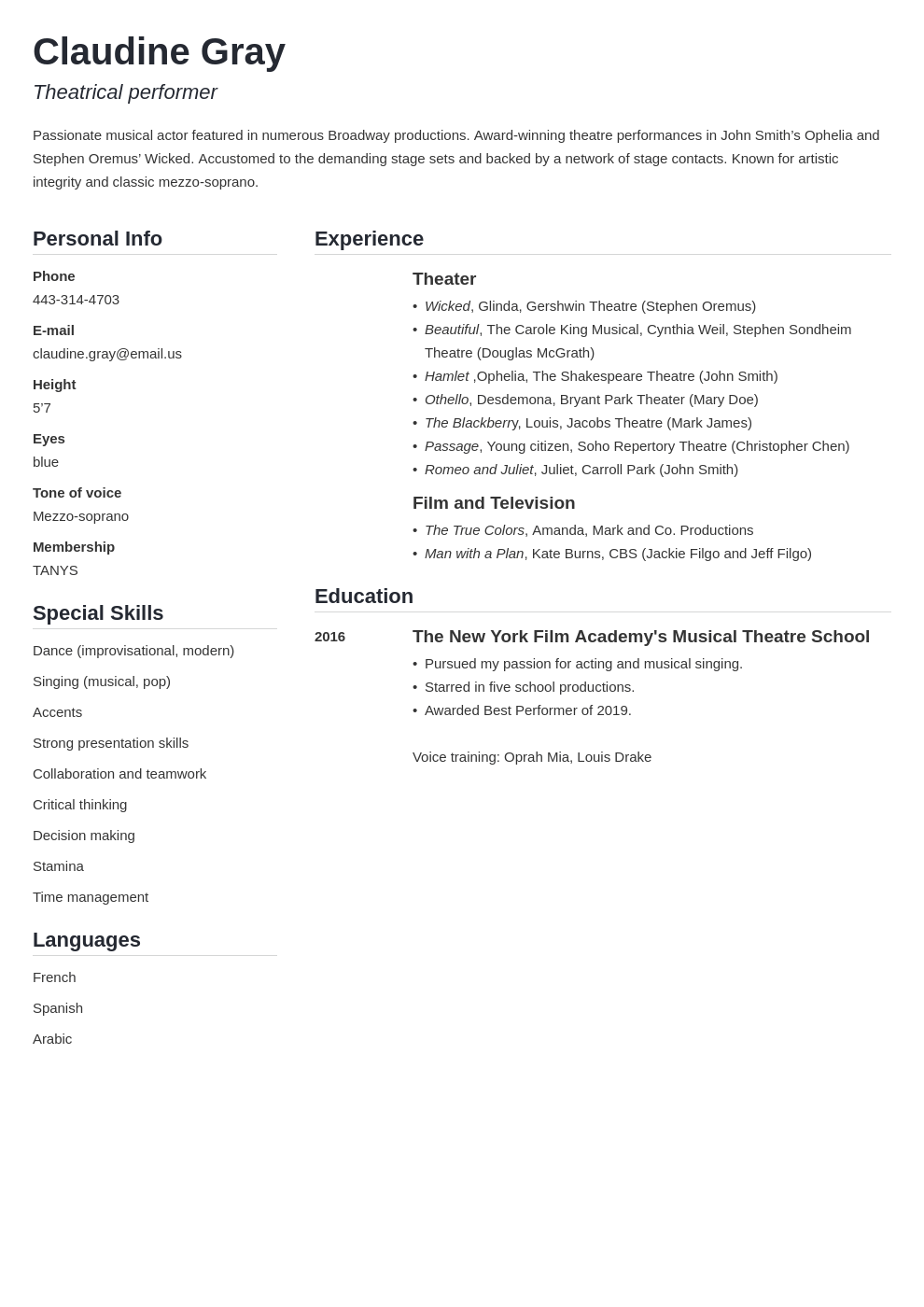
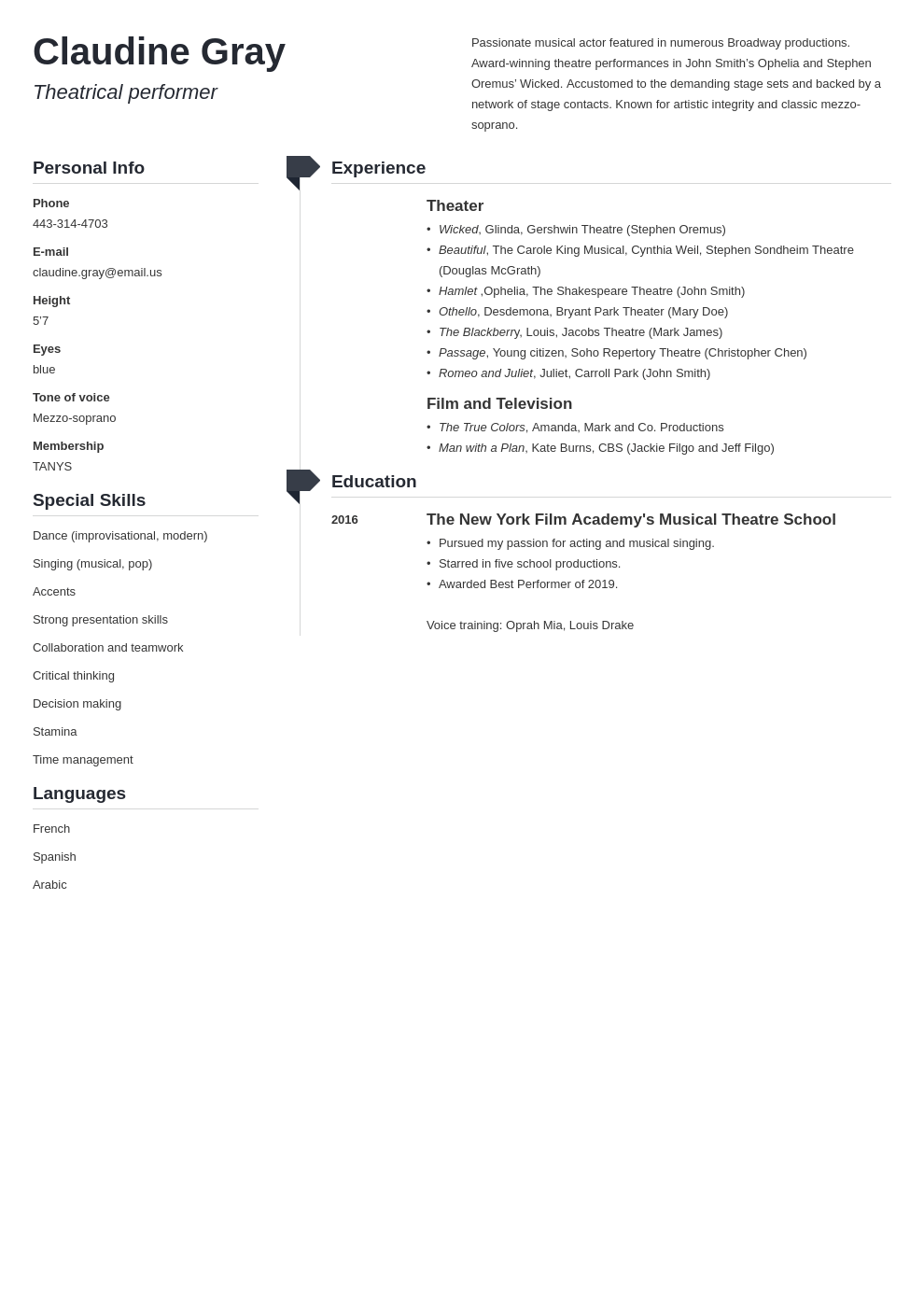
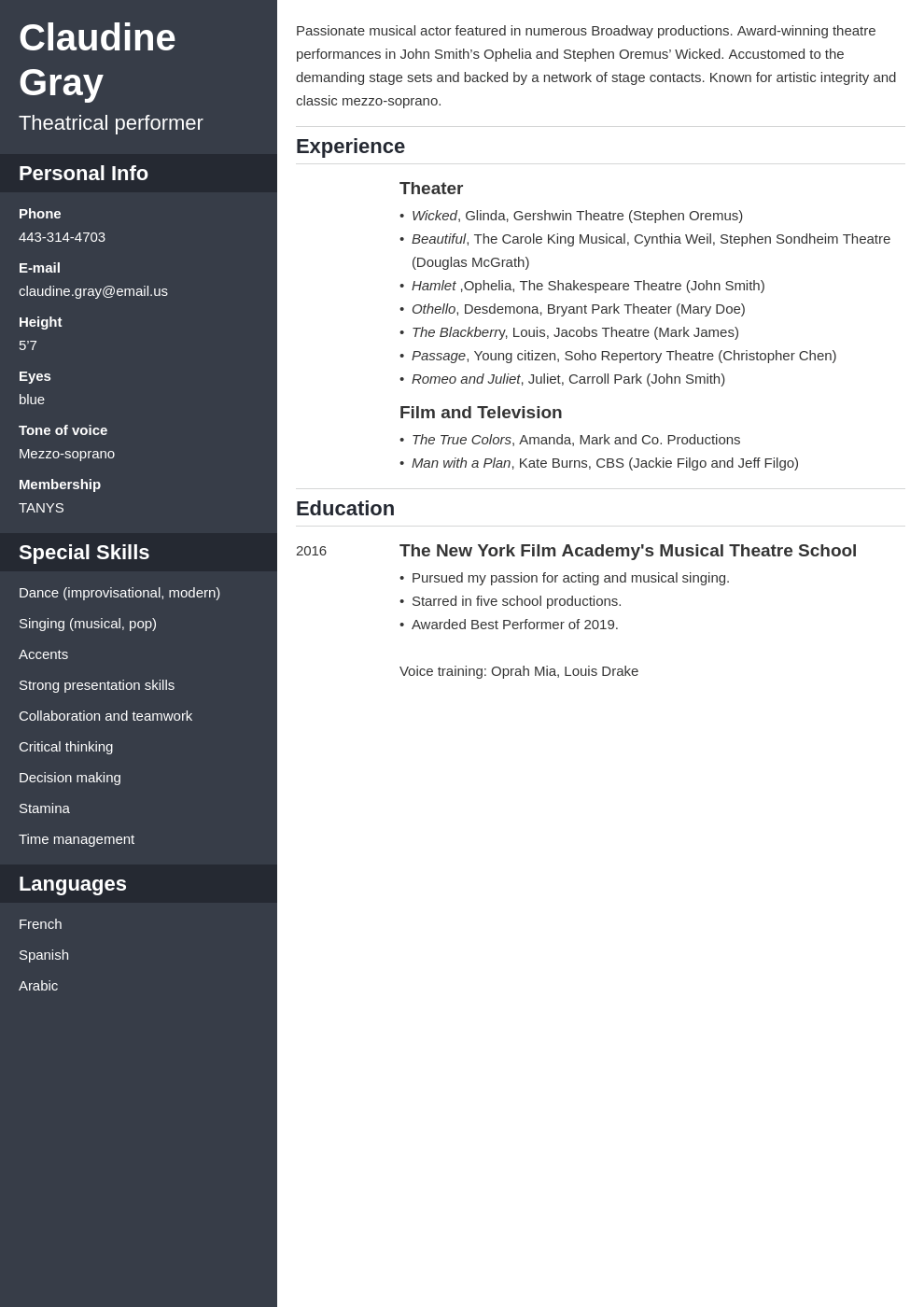
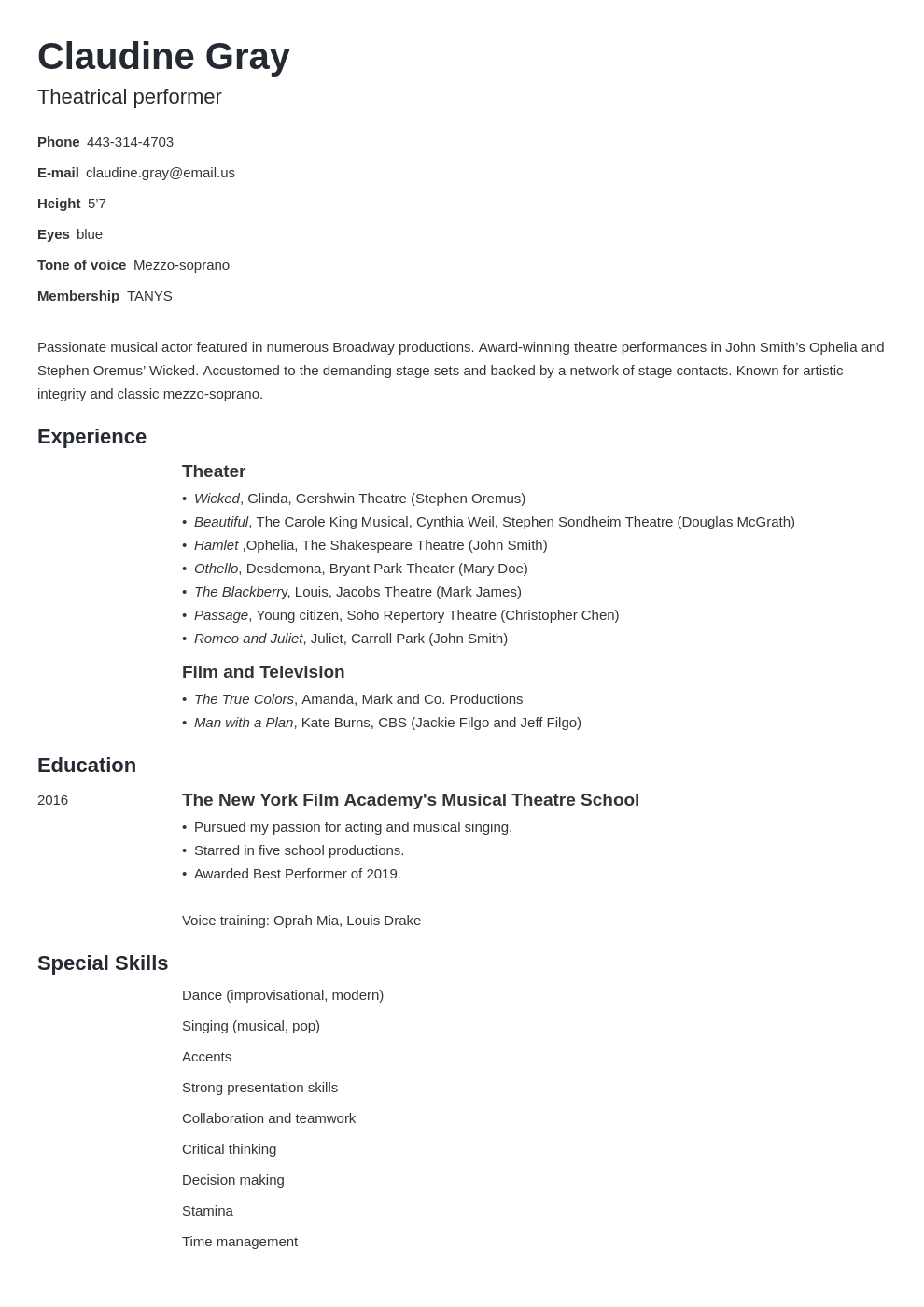
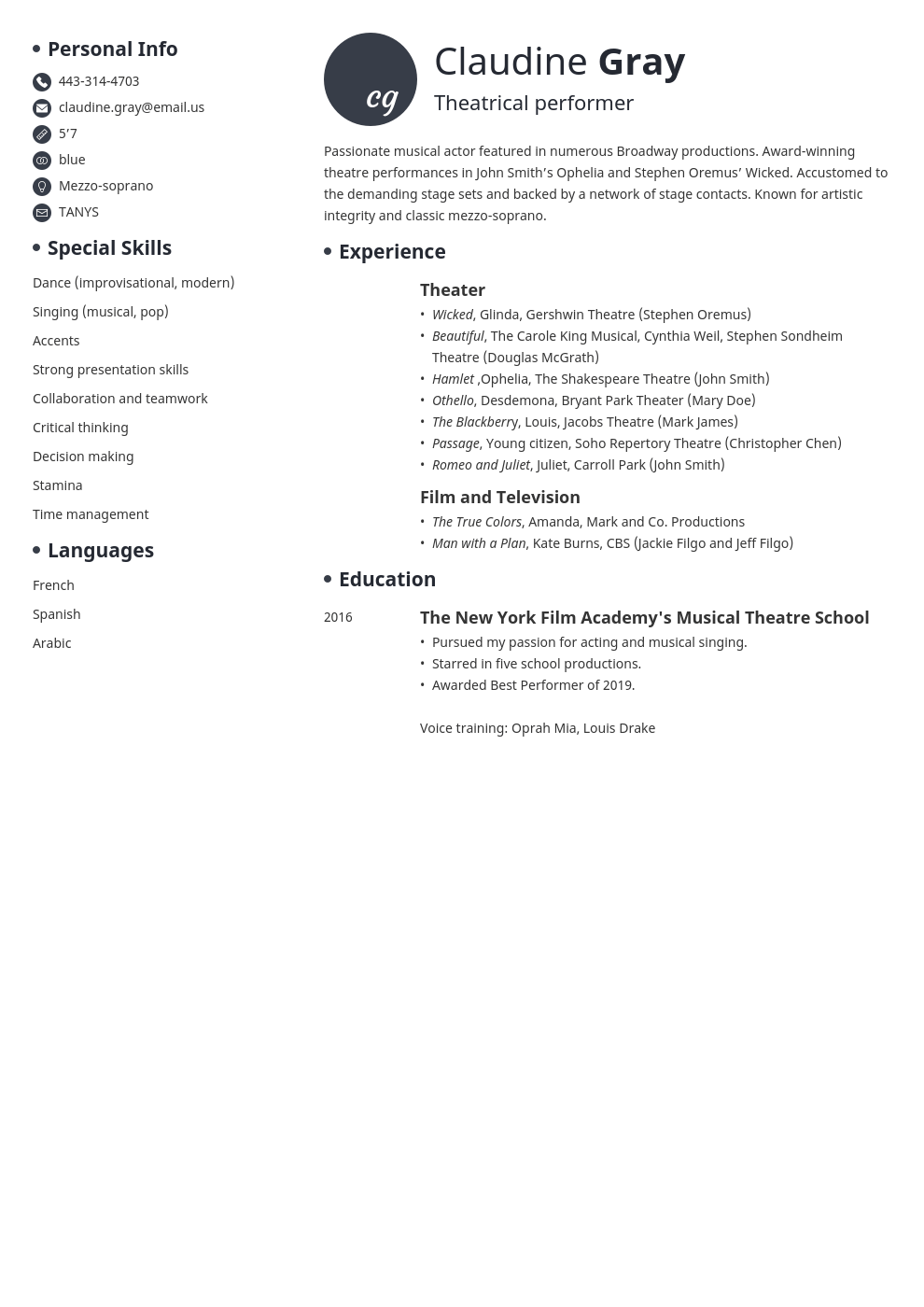
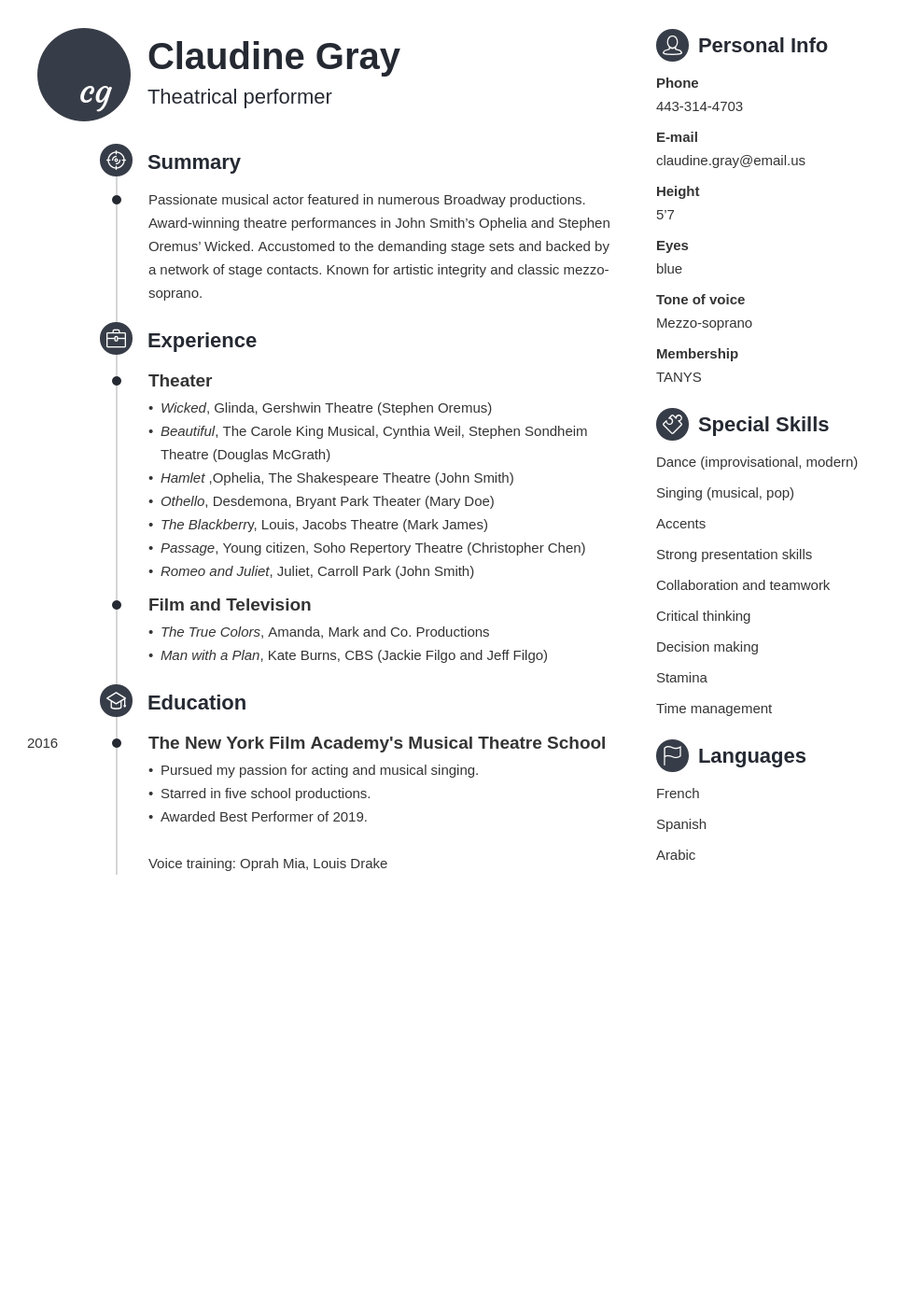
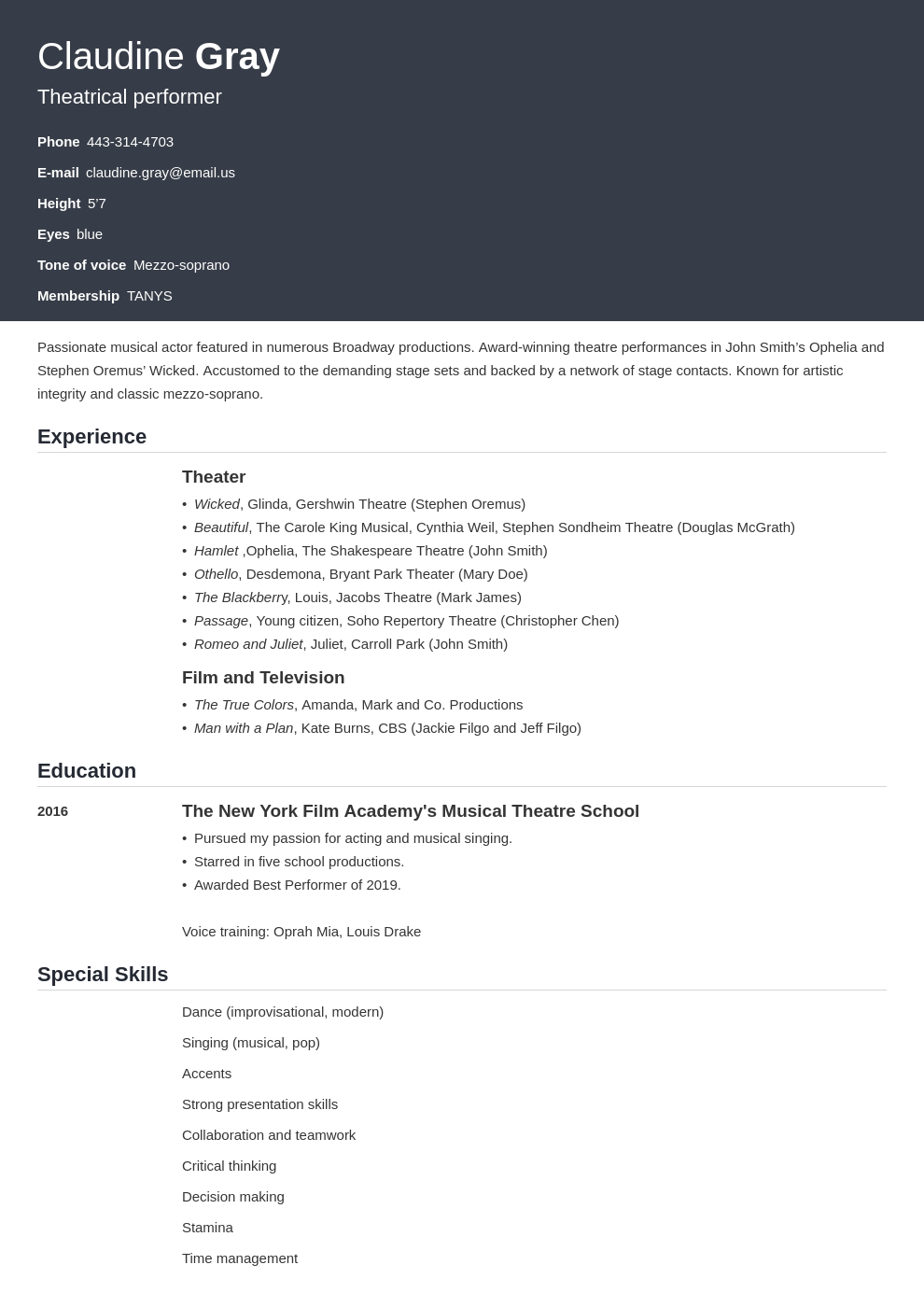
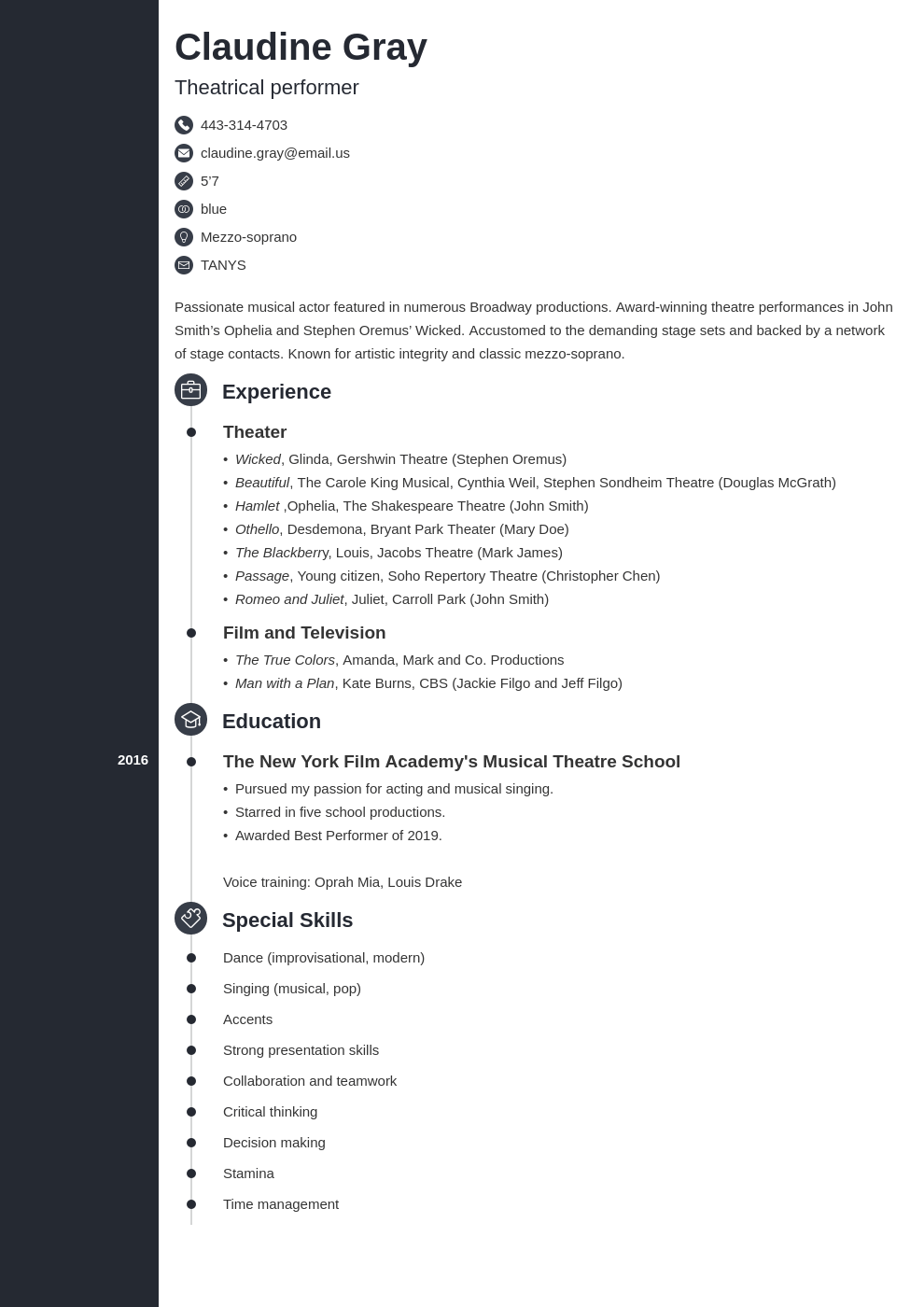
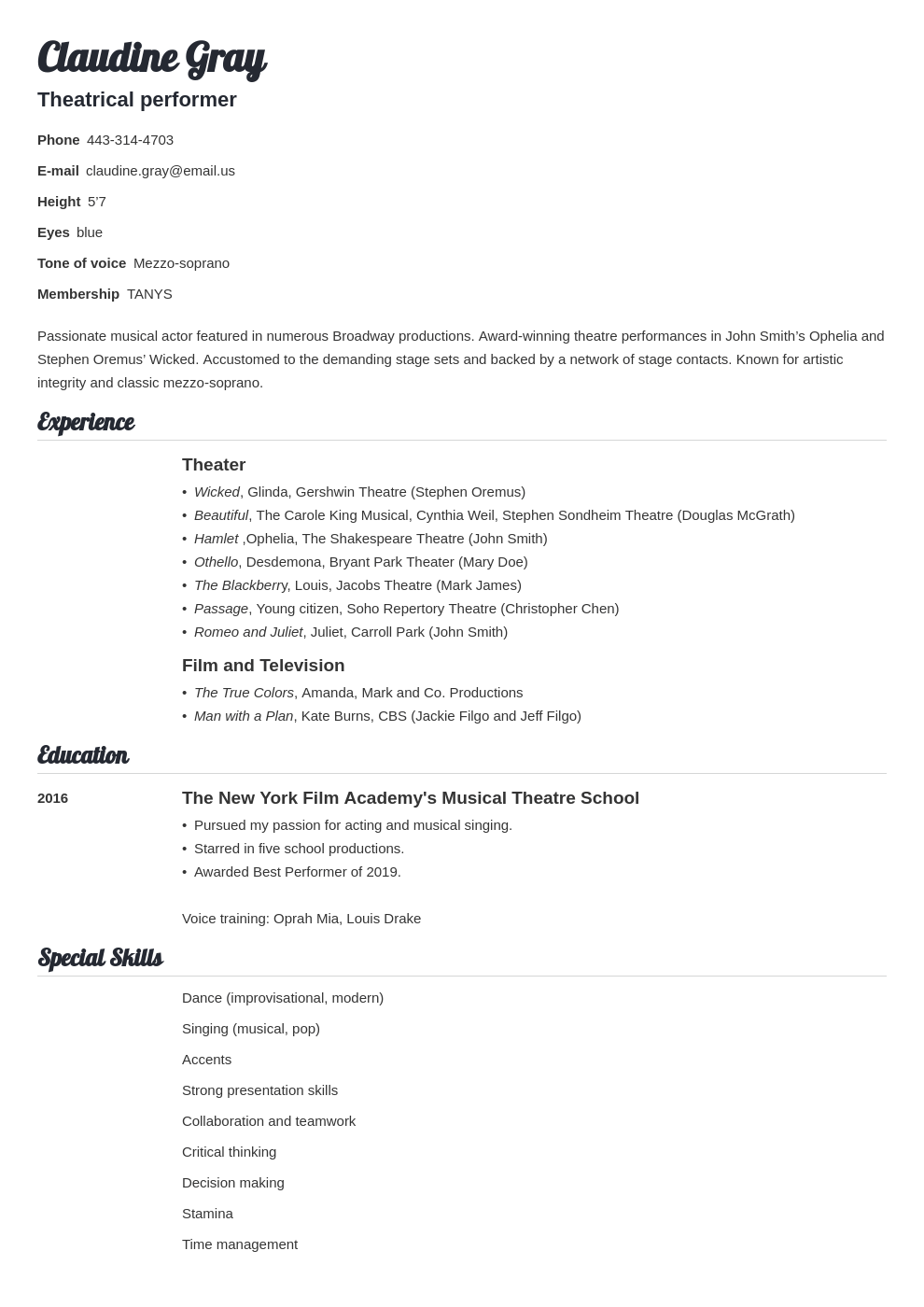
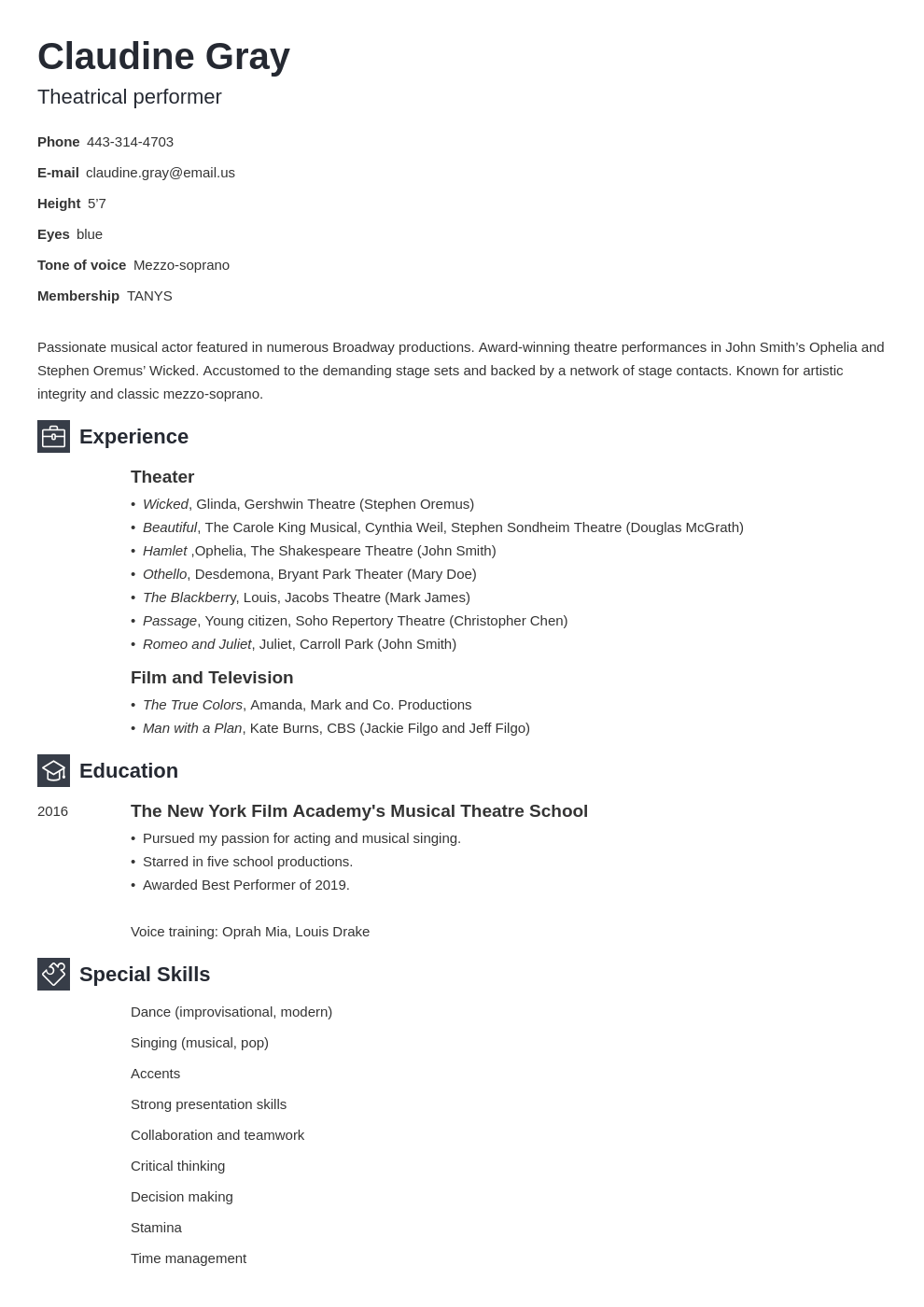
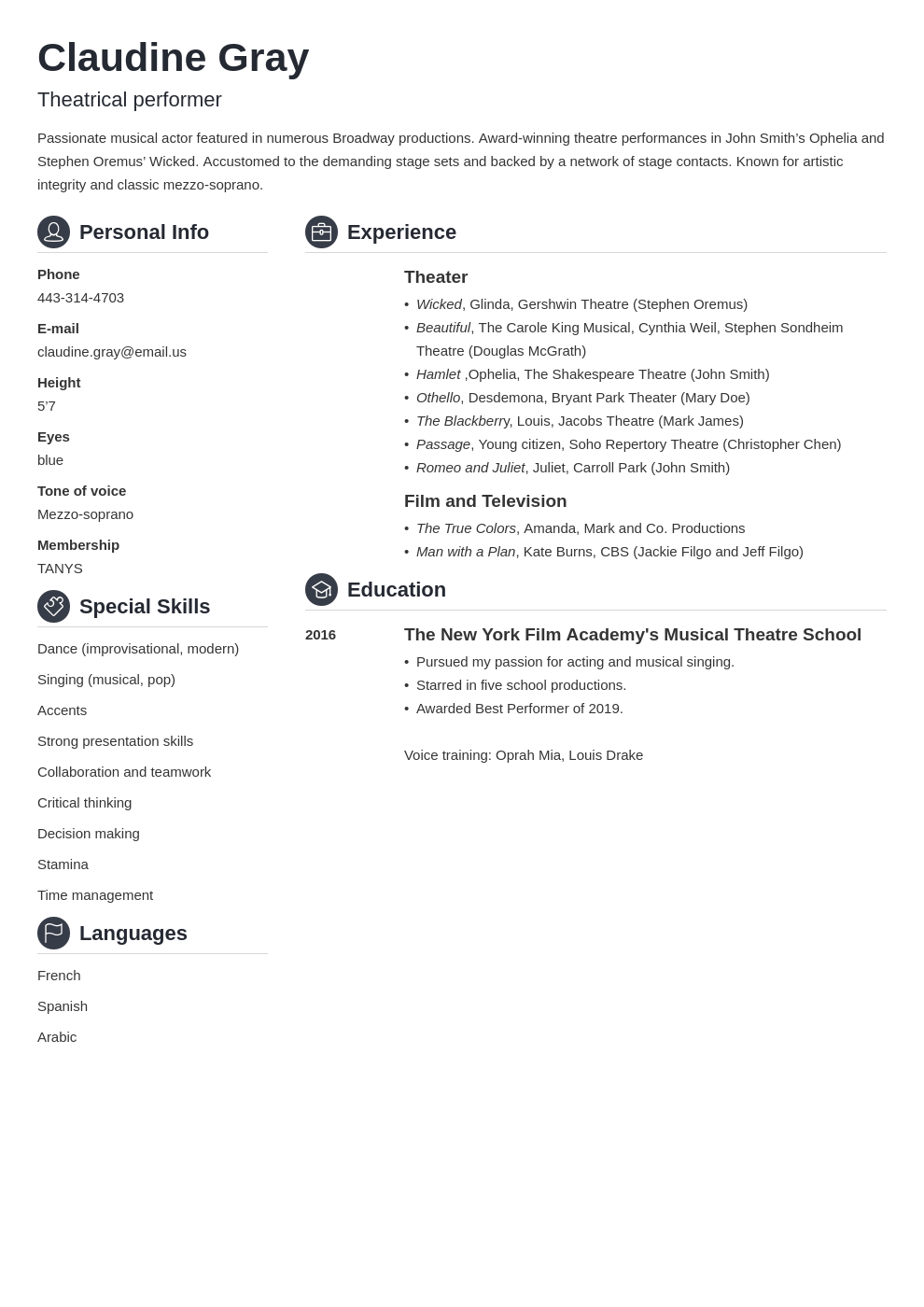
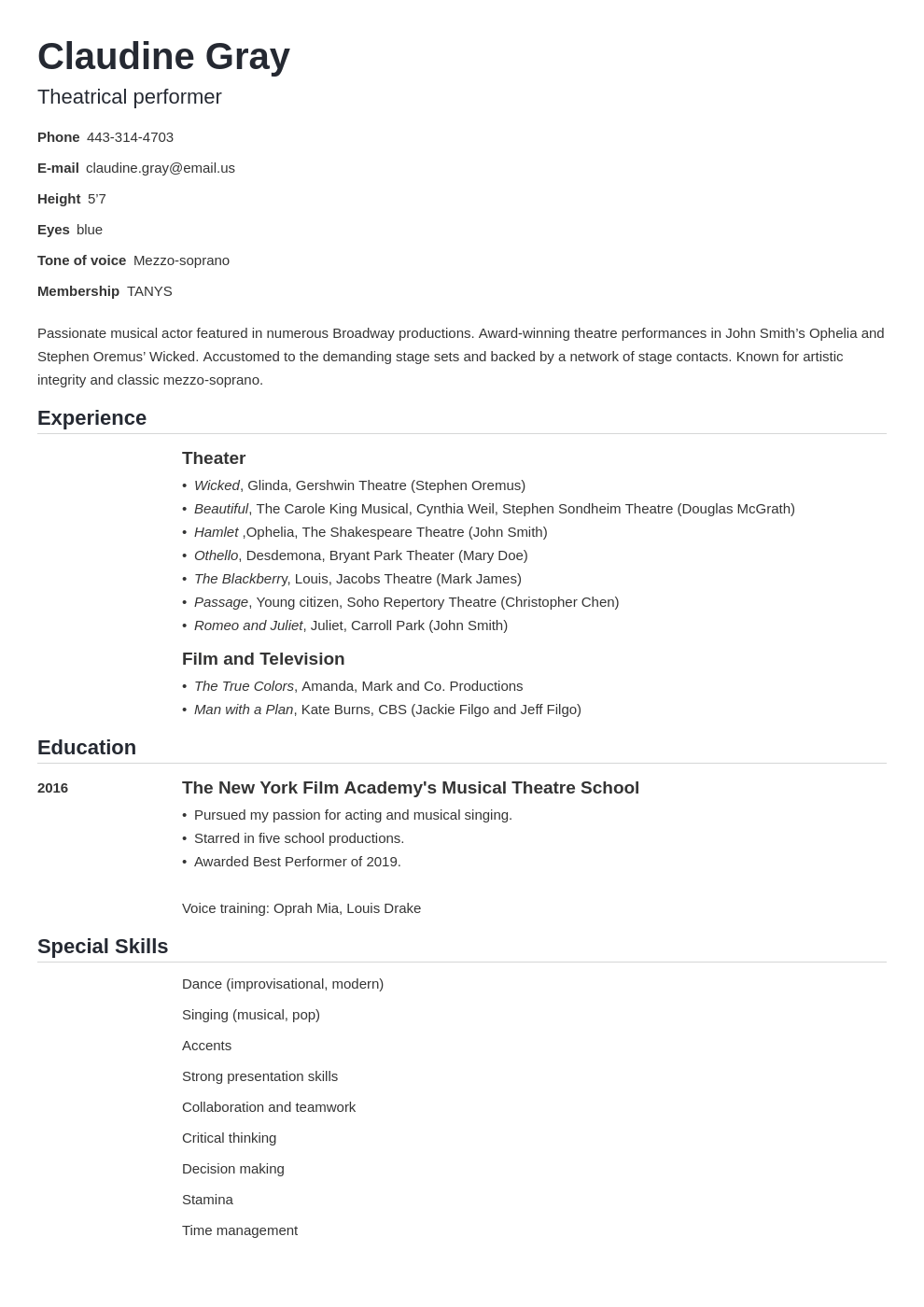
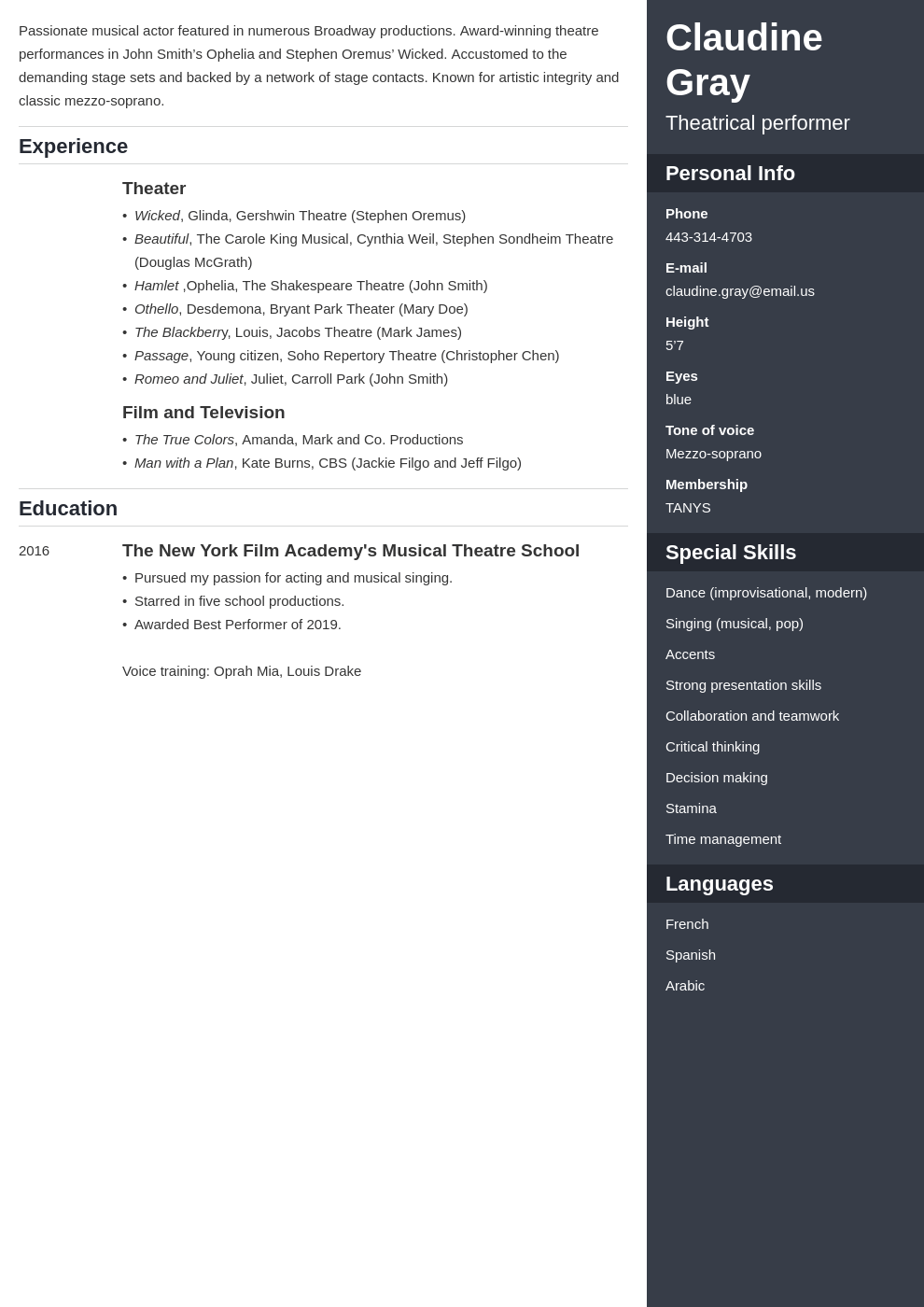
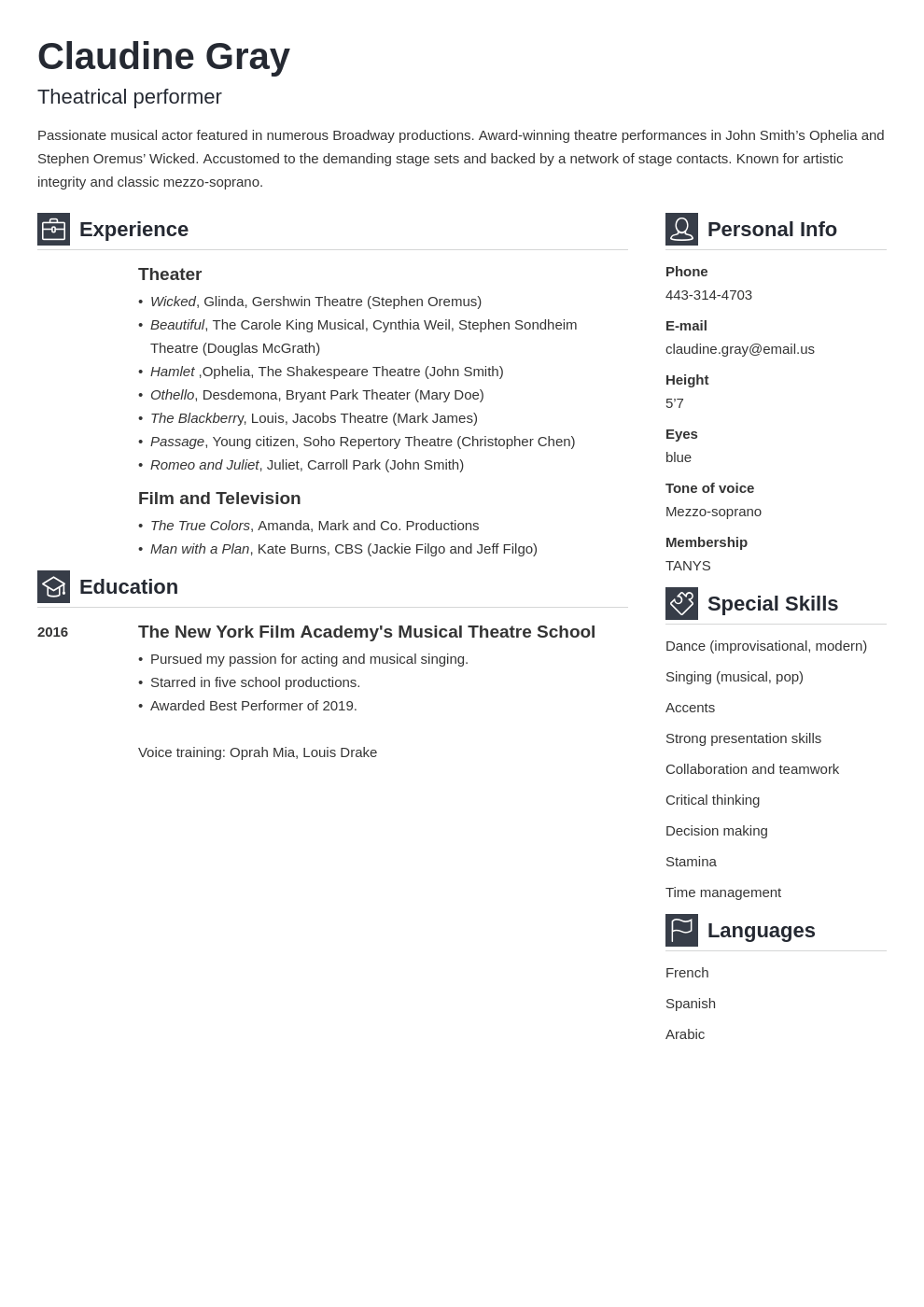
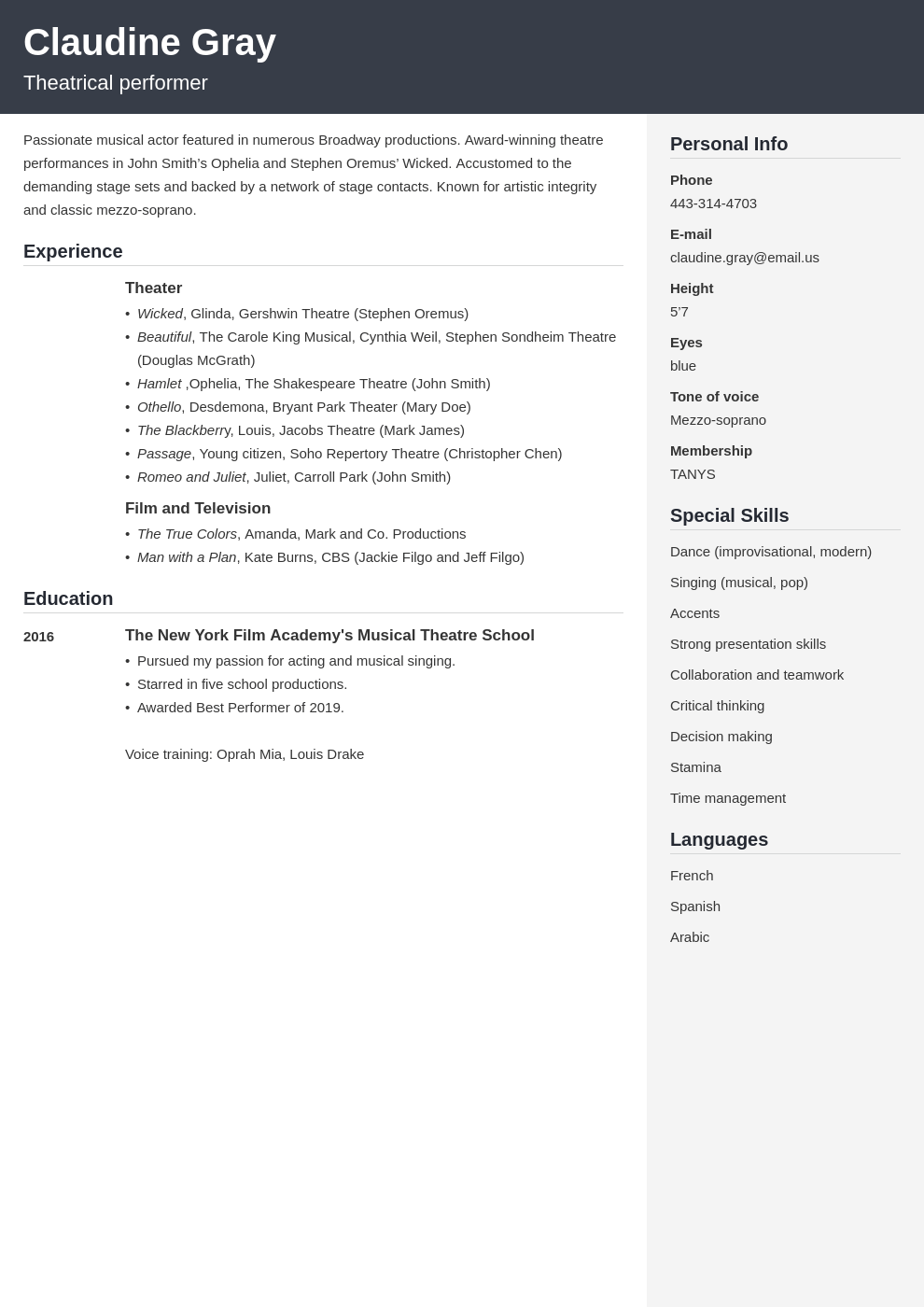
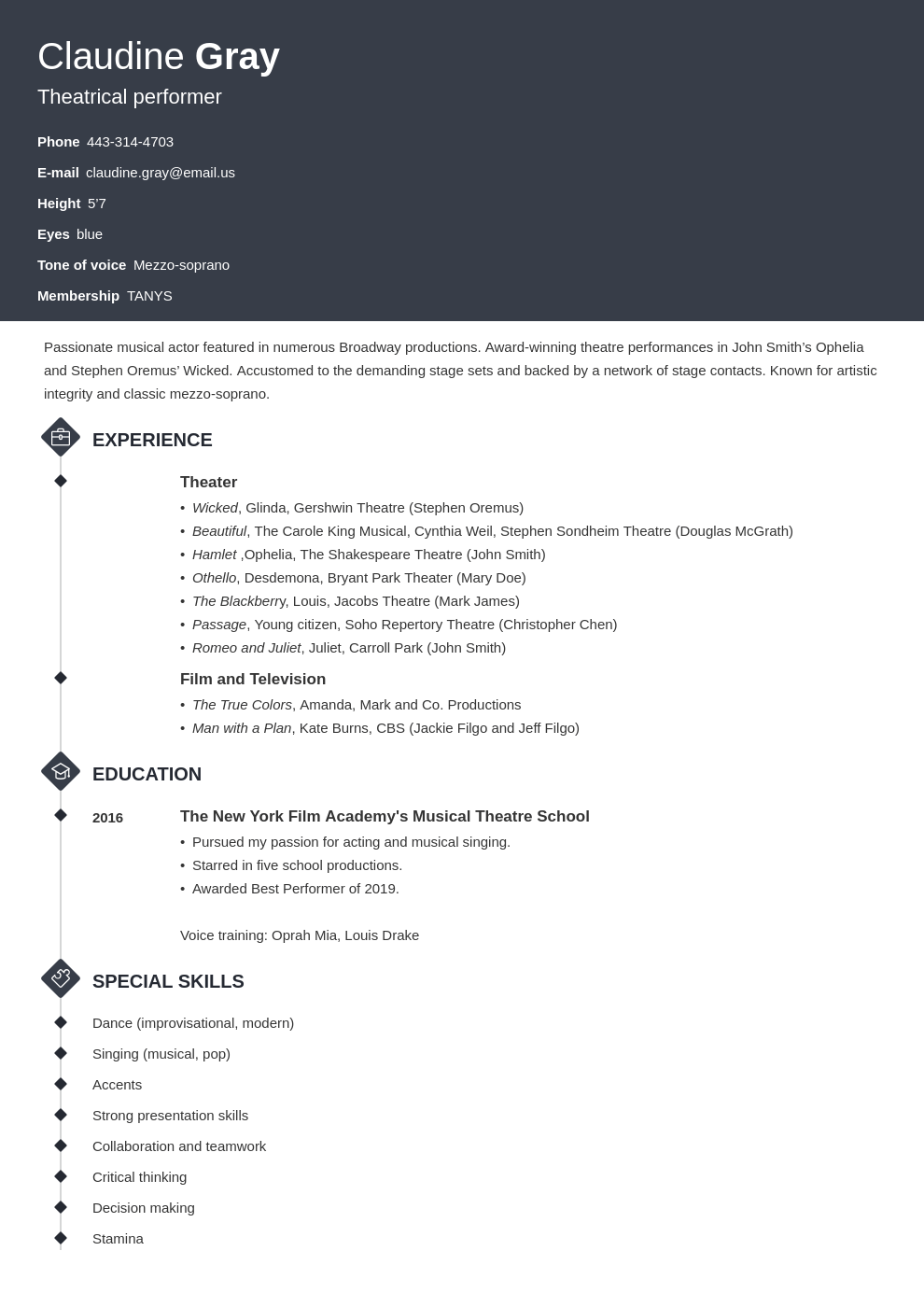
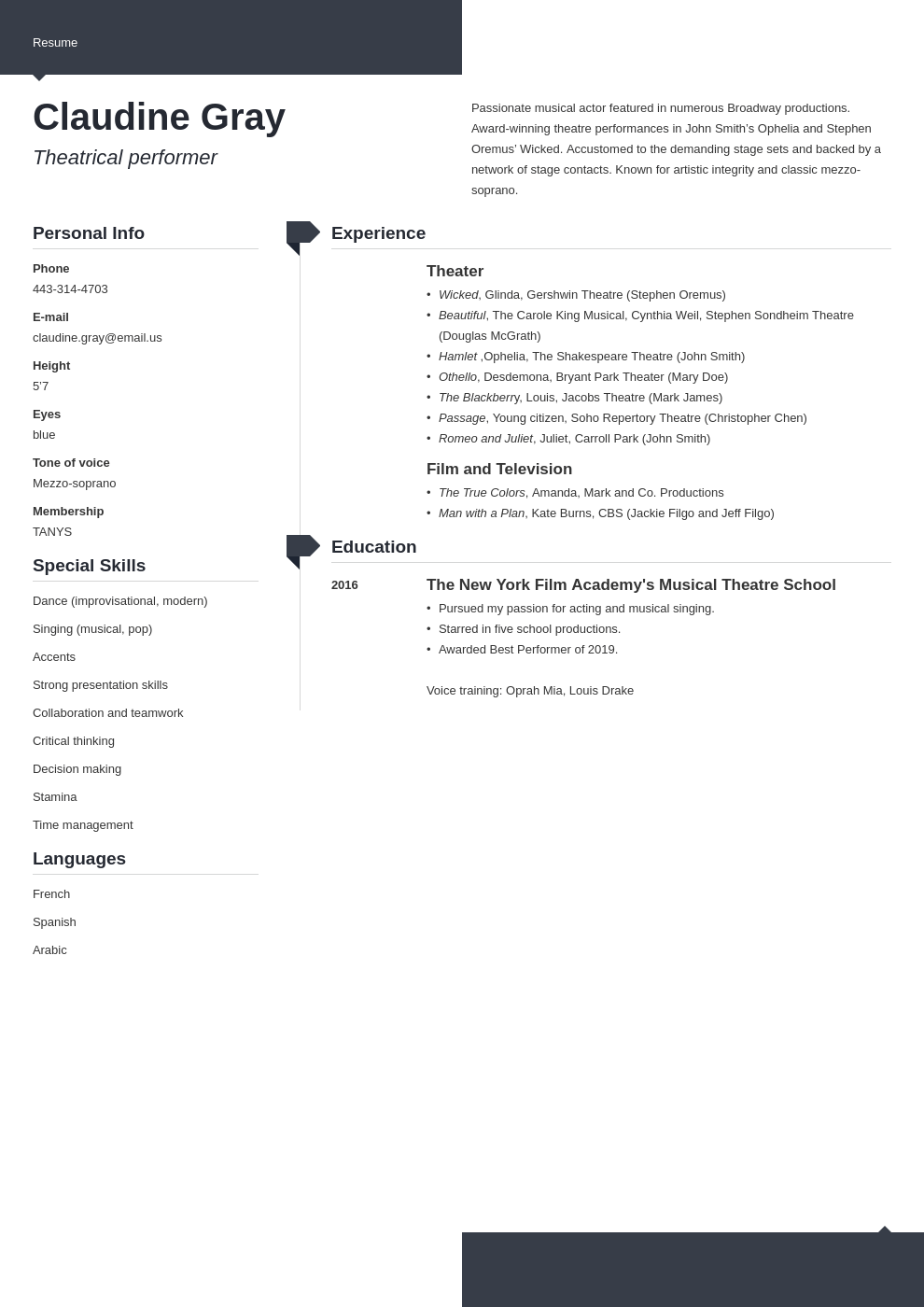
The best resume templates aren't just about fancy looks. They have to be sleek and professional. Their layout needs to show off your value. Here's what'll help.
In this guide you’ll learn *when* and *how* to use a general, universal resume. Plus, you’ll see an easy-to-use template you can copy and tweak in no time.
If you’re serious about getting a job, you must know how an ATS works. Otherwise, you’ll expend your time and energy making resumes no one will ever have a chance to read.

